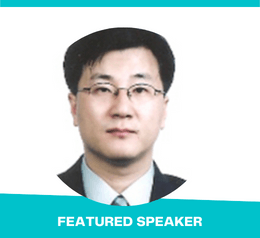Scholars Scholars World Congress on
Material Science and Engineering
THEME: "Advances in Material Science and Engineering"
 23-24 May 2022
23-24 May 2022  ONLINE & VIRTUAL
ONLINE & VIRTUAL THEME: "Advances in Material Science and Engineering"
 23-24 May 2022
23-24 May 2022  ONLINE & VIRTUAL
ONLINE & VIRTUAL 
Dongguk University, Republic of Korea and Korea Institute of Science and Technology Europe, Germany
Title: Enhancing the electrolyte wettability in lithium-ion batteries
Dong Hyup Jeon is an Associate Professor at Dongguk University-Gyeongju in South Korea. He has been working in the design and modelling of electrochemical power sources, especially fuel cells and batteries. He has published more than 60 papers, patents and chapter books. He has a Ph.D degree in Mechanical & Aerospace engineering from the Seoul National University and was a postdoctoral fellow in NRC Canada and University of South Carolina. He has been a Dean of Industry-Academy cooperation foundation and Director of Data Analysis center in Dongguk University-Gyeongju, and Principal research engineer in Samsung SDI and research engineer in LG Chemical.
Enhancing the electrolyte wettability (i.e., wetting speed and wetting level) has been claimed to be a challenge in developing high-energy density and large-scale lithium-ion batteries (LIBs). Superb wettability ensures high-quality LIBs, but poor wettability incurs unstable capacity, shortened cycle life, and additional manufacturing cost. However, wettability issue has been understated, and associated breakthrough technology is not yet available. Here, we investigate the way of enhancing the wettability by controlling the volume ratio of different-sized particles. We successfully demonstrate electrolyte transport behavior in microstructure point of view. We investigate the effect of particle-size ratio on cathode wettability in two aspects: with porosity preserved and by adding small particles. The results demonstrate that proper particle-size ratio improves the wettability. Electrolyte distribution and correlated pore-throat size distribution not only affect the wetting behavior but also pose crucial factors that determine the wetting speed. Our study provides novel mechanistic insight into the electrolyte wetting process, and the results are one of the few reported ones that give important information toward wettability enhancement.